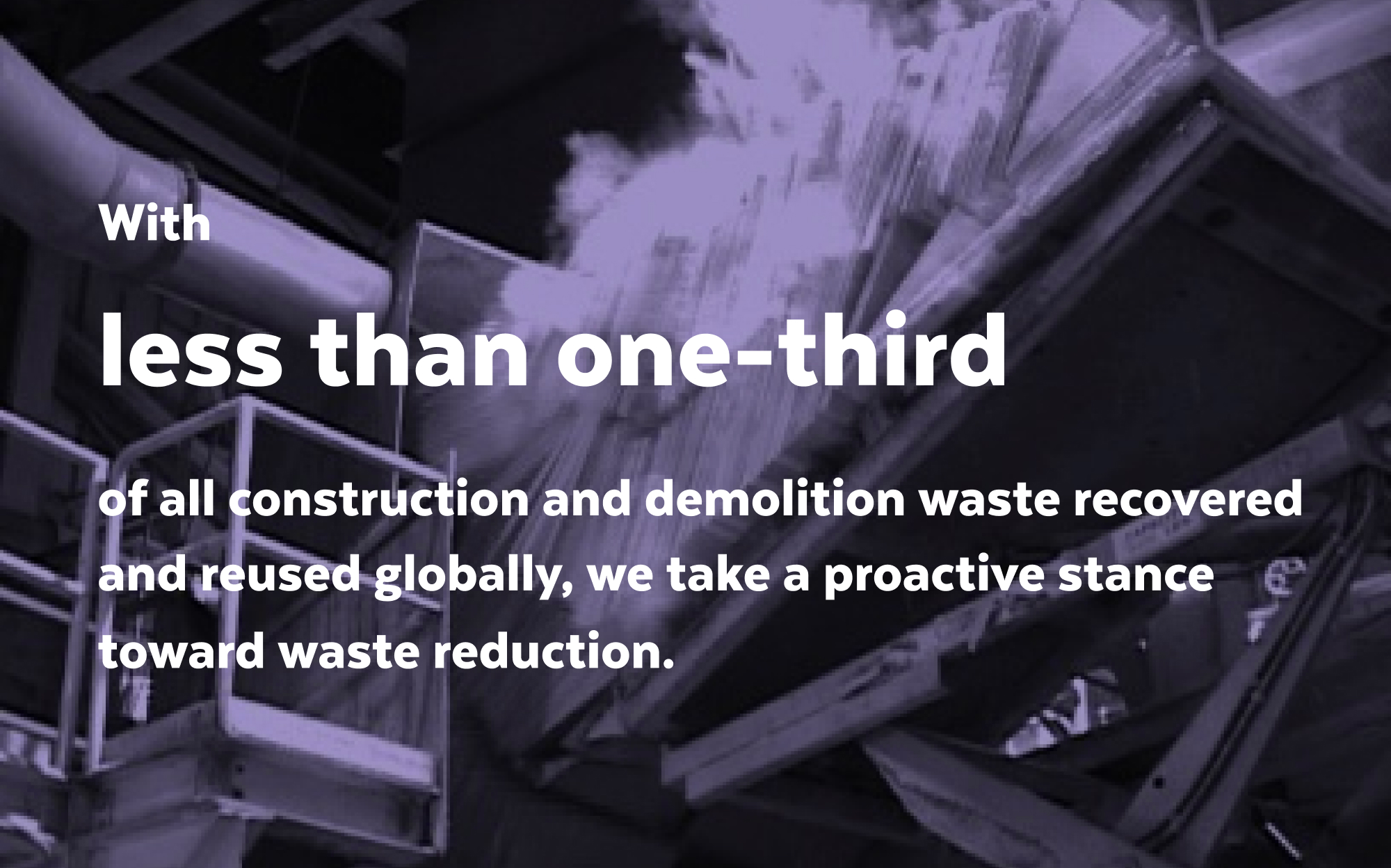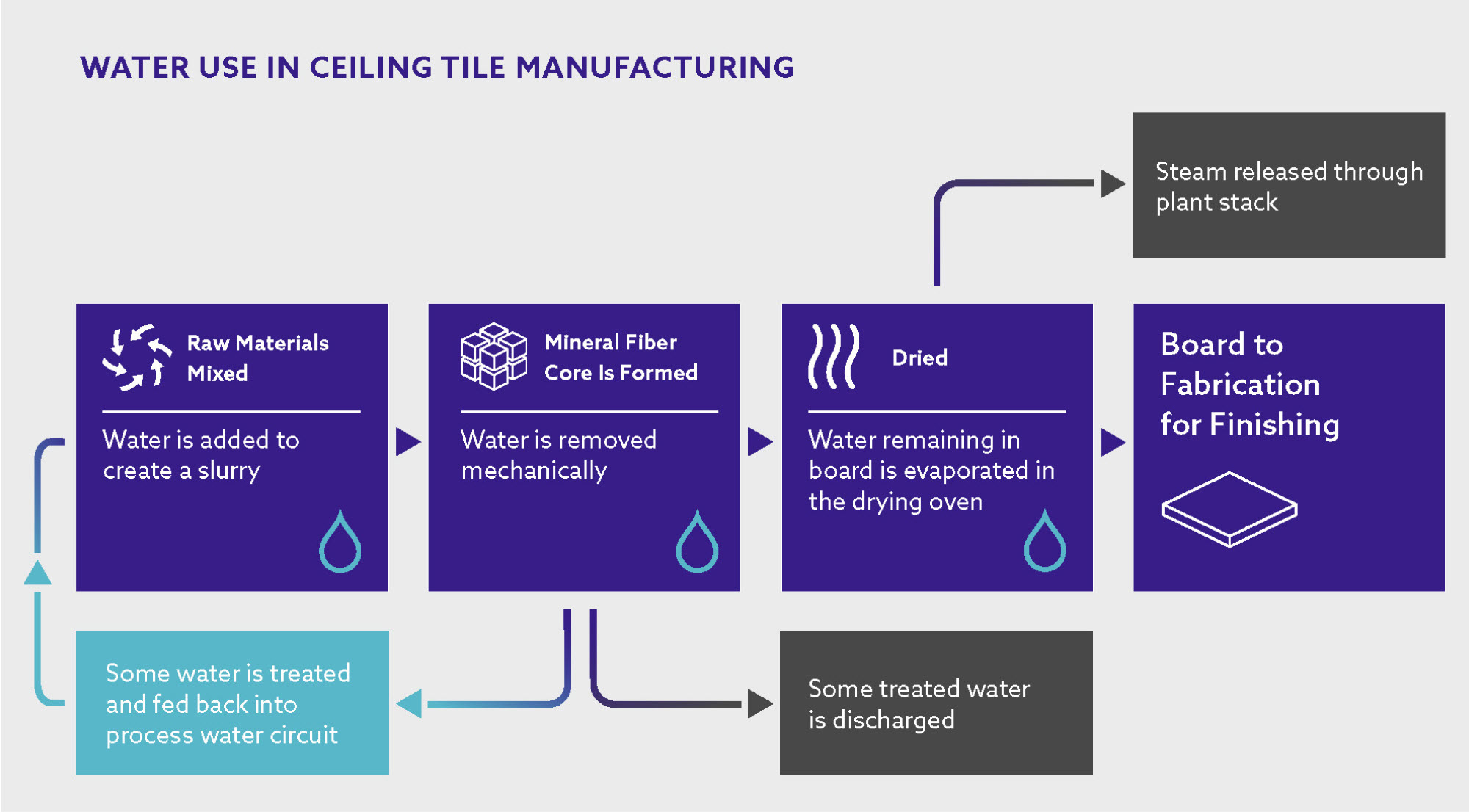We recognize that we have an important role to play in conserving natural resources in the products we manufacture. For us, that means managing waste streams from our design process and material sourcing, through to our manufacturing process and the end of our products’ use cycle. Designing waste out of our value chain is key to our transition to a circular economy model. In addition, access to clean, adequate water resources is an issue of growing concern around the world, and one that could have even more significant impacts in the future.
Targets for 2030
Reduction in absolute waste from our operations, from a 2019 baseline.
Water management practices include measures designed to minimize usage and environmental discharge.
Reduction in the water intensity of our products compared to a 2019 baseline.
Waste

Our mineral fiber products account for the majority of our environmental footprint, including waste. Waste generated during production is recycled back into the manufacturing process wherever possible. We use recycling streams like post-consumer waste — including newspapers, telephone books and water bottles — as well as pre-consumer fiberglass and mineral wool, to reduce the use of virgin materials in our products.
With less than one-third of all construction and demolition waste recovered and reused globally, we are working to integrate a circular economy approach across our portfolio. You can find more information in Circular Products.
Water
Armstrong does not currently operate in any areas experiencing high water stress, but we are still mindful of our responsibility to limit our consumption and protect local watersheds from pollution.

Our water usage varies across our operations, but our mineral fiber board forming process is the most water-intensive. The majority of our water use is in the raw material slurry used for board forming at our Macon, Georgia; Marietta, Pennsylvania, and Pensacola, Florida, plants. This slurry is dewatered through mechanical processes to create a mat, which is then conveyed through a large natural gas dryer, where the remaining water is evaporated. The water collected from the dewatering process is collected and treated. A portion of the treated water is then reused in the process and a portion is discharged (to surface water bodies or publicly owned treatment plants, depending on the location).
As part of our 2030 target work, we are working to both limit the quantity and improve the quality of our discharge water. The water treatment system at each plant is unique, making much of the work very focused at the facility level. All of our U.S. facilities are subject to local, state and federal discharge requirements, and in many cases are permitted.